Indonesia's Journey Amidst Tariff Pressures
As the mid-2025 global economic landscape unfolds, international trade is increasingly defined by a new wave of protectionist measures and intricate negotiations, primarily driven by the United States. This era sees tariffs deployed not just as economic tools but as powerful instruments of foreign policy, directly impacting crucial trading partners like China, Indonesia, and Canada. The shifts underscore a period of profound recalibration in global supply chains and diplomatic relations, with far-reaching consequences for national economies and international cooperation.
A central narrative in this evolving trade environment is the complex relationship between the US and China. Having endured a period marked by escalating tit-for-tat tariffs that reached heights of 125%, the two economic giants have recently engaged in diplomatic efforts that led to a provisional trade framework. This agreement includes a partial rollback of tariffs, with US duties on Chinese imports consolidating at 55 percent and China's retaliatory tariffs reducing to 10 percent. Crucially, the deal also addresses the flow of critical rare-earth minerals, with China agreeing to ease exports vital for global manufacturing. Despite these de-escalations, fundamental disputes regarding US export controls and China's market access remain largely unresolved, suggesting this understanding may be more a tactical pause than a durable peace. Concurrently, Indonesia finds itself at a pivotal juncture, facing a looming 9 July deadline for the implementation of a 32% reciprocal tariff from the US. Jakarta has proactively responded with a second-best offer in negotiations, a proposal that has been welcomed by the US, indicating a potential pathway to avert the steep duties through increased US imports, particularly in energy and agricultural commodities. In stark contrast, trade relations between the US and Canada have seen an abrupt halt, with President Trump terminating all talks and threatening new tariffs, citing Canada's planned digital services tax on American technology companies as an egregious act.
For Indonesia, the current trade dynamics present a mixed set of implications. The positive reception of its trade proposal by the US offers a vital opportunity to avoid new tariffs, which would safeguard key export-dependent sectors such as textiles, footwear, electronics, and furniture. Preventing these tariffs would ensure the continued competitiveness of Indonesian products in the US market and help maintain its trade surplus, which surprisingly expanded in the first four months of 2025. This outcome would provide crucial support for Indonesia's robust manufacturing sector, a cornerstone of its ambitious economic growth targets. Furthermore, any de-escalation in the broader US-China trade tensions, particularly concerning critical minerals, indirectly contributes to a more stable global economic climate, potentially benefiting Indonesian businesses by reducing overarching market uncertainties.
However, experts caution that the overall landscape remains inherently fragile. The nature of recent trade truces between major powers, often described as temporary pauses rather than lasting resolutions, means that Indonesian companies must remain highly adaptable. The sudden termination of US-Canada trade talks serves as a potent reminder of how swiftly political disagreements can translate into economic disruptions. Therefore, companies in Indonesia, especially those with significant exposure to the US market, are urged to enhance their resilience. This includes diversifying export markets beyond traditional partners, streamlining supply chains to mitigate potential tariff impacts, and exploring hedging strategies. Analysts also emphasize that while diplomatic engagement and strategic trade-offs are crucial, Indonesia's long-term economic stability and strategic independence will depend on genuinely meeting its defense needs and bolstering its indigenous industrial capabilities, rather than allowing external trade pressures to dictate procurement decisions that are not fundamentally aligned with national interests.
Sources:
- "Indonesia proposes 'second-best offer' on reciprocal tariffs to US." ANTARA News, June 28, 2025. https://en.antaranews.com/news/362505/indonesia-proposes-second-best-offer-on-reciprocal-tariffs-to-us
- "Indonesia Says US Welcomes Its Trade Proposal as Tariff Clock Ticks." Jakarta Globe, June 26, 2025. https://jakartaglobe.id/business/indonesia-says-us-welcomes-its-trade-proposal-as-tariff-clock-ticks
- "Indonesia and US Begin Discussions on Reciprocal Tariffs." RRI, April 17, 2025. https://rri.co.id/en/international/1456181/indonesia-and-us-begin-discussions-on-reciprocal-tariffs
- "Trump's US-China trade tariffs timeline." World Economic Forum, June 26, 2025. https://www.weforum.org/stories/2025/06/trumps-us-china-trade-tariffs-timeline/
- "Trump says he's not planning to extend a pause on global tariffs beyond July 9." AP News, June 29, 2025. https://apnews.com/article/china-trade-earths-tariffs-trump-463ae8d6ccba15b56c7d4d31d3fc42a1
- "Indonesia Told to Take Advantage of US-China Tariff Truce." Jakarta Globe, May 13, 2025. https://jakartaglobe.id/opinion/uschina-tariff-tension-and-truce
- "Trump says he's terminating trade talks with Canada over tax on tech firms." AP News, June 27, 2025. https://apnews.com/article/trump-canada-trade-tariffs-43a08970daa1ae5dd888bd3198bac45f
- "Donald Trump Cuts Off Trade Talks With Canada, 'Effective Immediately'." Newsweek, June 27, 2025. https://www.newsweek.com/trump-canada-ends-trade-talks-tariff-2091826

GLOBAL TRADE
June 30, 2025
